Indigenous Governance Database
Navigating the American Rescue Plan Act: A Series for Tribal Nations
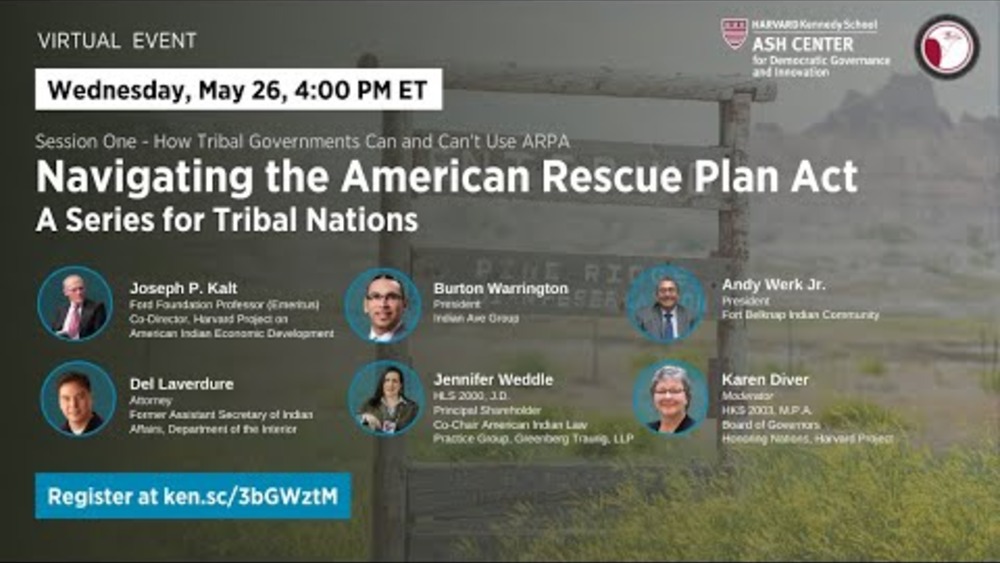
Navigating the ARPA: A Series for Tribal Nations. Episode 1: How Tribal Governments Can and Can't use ARPA
The American Rescue Plan Act (ARPA) provides the largest single infusion of federal funding into Indian Country in the history of the United States. More than $32 billion is directed toward assisting American Indian nations and communities as they work to end and recover from the devastating COVID-…
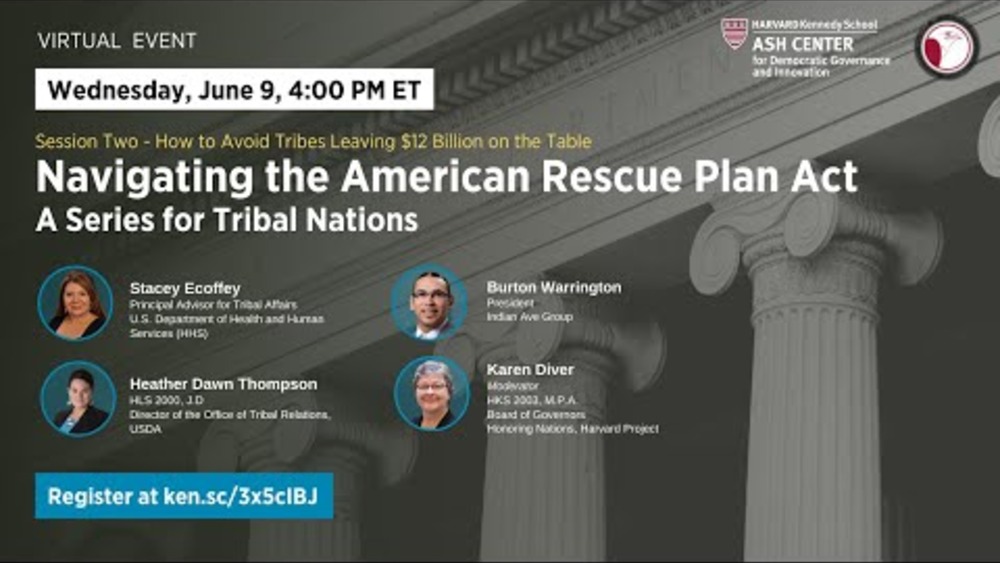
Navigating the ARPA: A Series for Tribal Nations. Episode 2: How Tribes Can Avoid Leaving $12 Billion on the Table
The American Rescue Plan Act (ARPA) provides the largest single infusion of federal funding into Indian Country in the history of the United States. More than $32 billion is directed toward assisting American Indian nations and communities as they work to end and recover from the devastating COVID-…
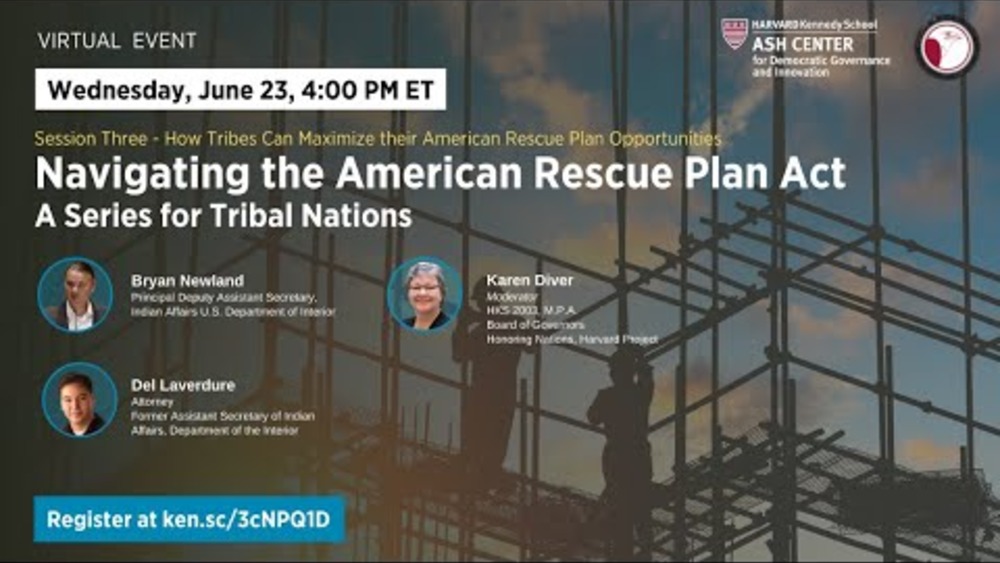
Navigating the ARPA: A Series for Tribal Nations. Episode 3: A Conversation with Bryan Newland - How Tribes Can Maximize their American Rescue Plan Opportunities
From setting tribal priorities, to building infrastructure, to managing and sustaining projects, the American Rescue Plan Act (ARPA) presents an unprecedented opportunity for the 574 federally recognized tribal nations to use their rights of sovereignty and self-government to strengthen their…
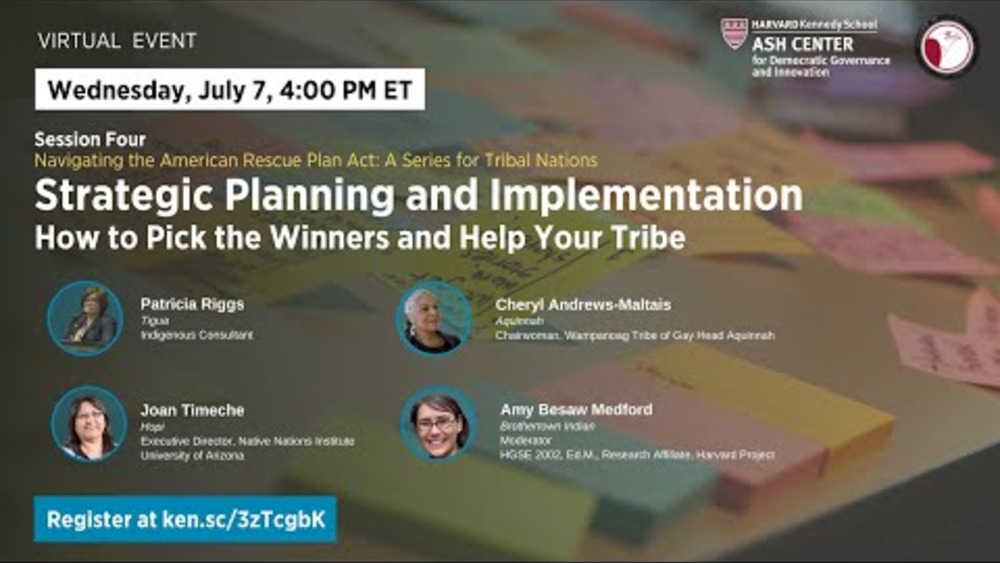
Navigating the ARPA: A Series for Tribal Nations. Episode 4: Strategic Planning and Implementation: How to Pick the Winners and Help Your Tribe
From setting tribal priorities, to building infrastructure, to managing and sustaining projects, the American Rescue Plan Act (ARPA) presents an unprecedented opportunity for the 574 federally recognized tribal nations to use their rights of sovereignty and self-government to strengthen their…
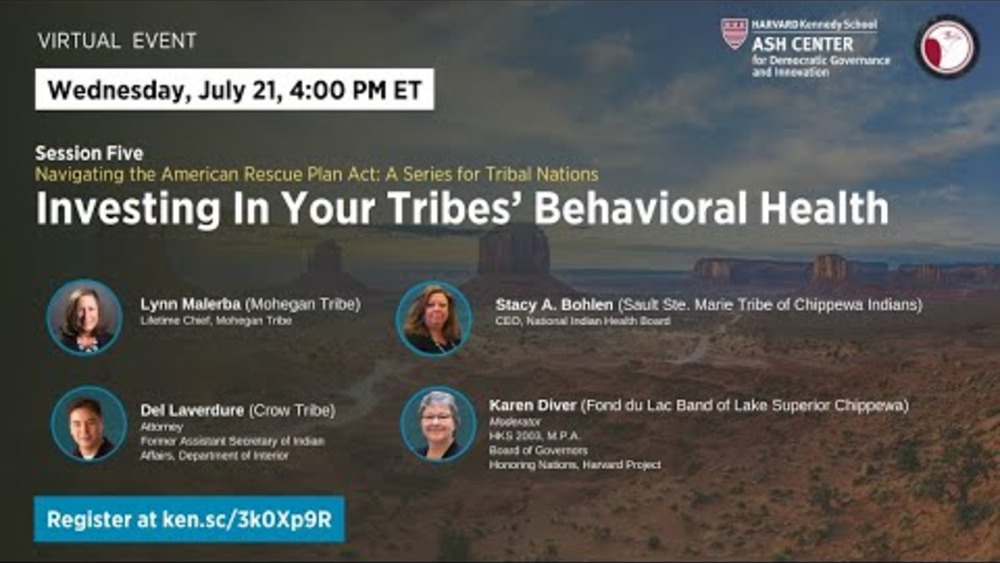
Navigating the ARPA: A Series for Tribal Nations. Episode 5: Investing in Your Tribes' Behavioral Health
From setting tribal priorities, to building infrastructure, to managing and sustaining projects, the American Rescue Plan Act (ARPA) presents an unprecedented opportunity for the 574 federally recognized tribal nations to use their rights of sovereignty and self-government to strengthen their…
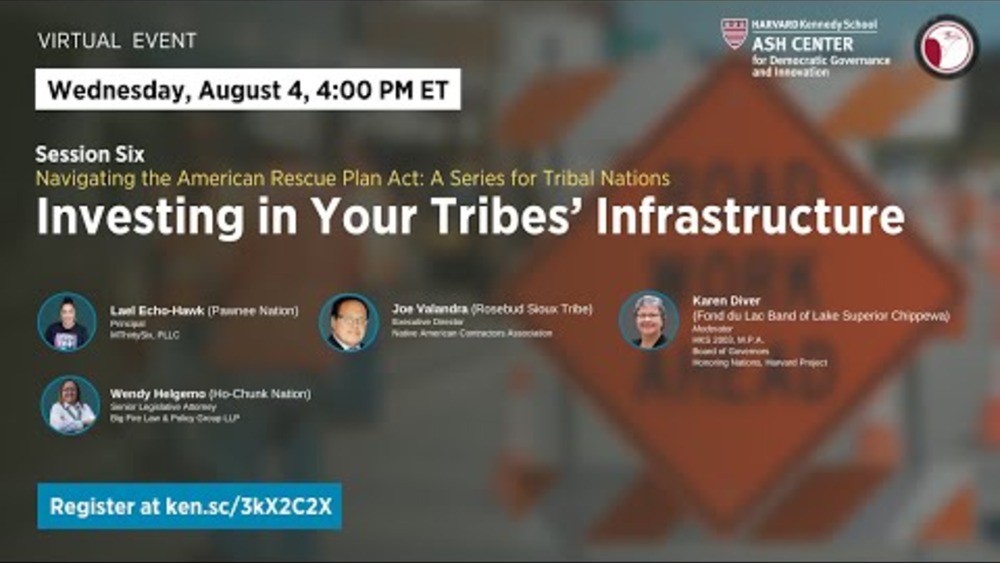
Navigating the ARPA: A Series for Tribal Nations. Episode 6: Investing in Your Tribes' Infrastructure
From setting tribal priorities, to building infrastructure, to managing and sustaining projects, the American Rescue Plan Act (ARPA) presents an unprecedented opportunity for the 574 federally recognized tribal nations to use their rights of sovereignty and self-government to strengthen their…
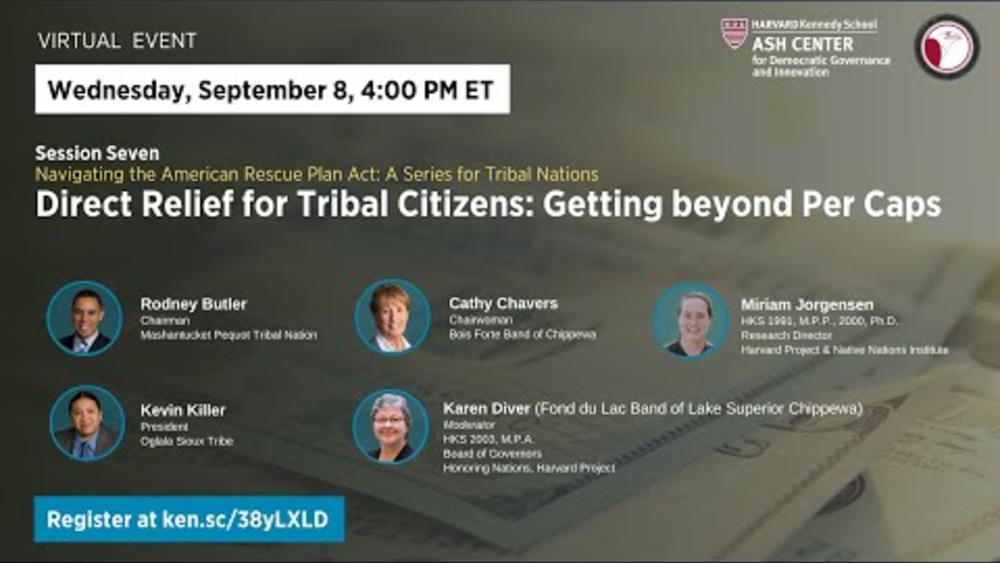
Navigating the ARPA: A Series for Tribal Nations. Episode 7: Direct Relief for Tribal Citizens: Getting beyond Per Caps
From setting tribal priorities to building infrastructure to managing and sustaining projects, the American Rescue Plan Act (ARPA) presents an unprecedented opportunity for the 574 federally recognized tribal nations to use their rights of sovereignty and self-government to strengthen their…
